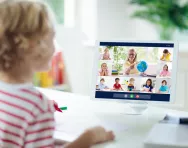TheSchoolRun.com closure date
As we informed you a few months ago, TheSchoolRun has had to make the difficult decision to close due to financial pressures and the company has now ceased trading. We had hoped to keep our content available through a partnership with another educational provider, but this provider has since withdrawn from the agreement.
As a result, we now have to permanently close TheSchoolRun.com. However, to give subscribers time to download any content they’d like to keep, we will keep the website open until 31st July 2025. After this date, the site will be taken down and there will be no further access to any resources. We strongly encourage you to download and save any resources you think you may want to use in the future.
In particular, we suggest downloading:
- Learning packs
- All the worksheets from the 11+ programme, if you are following this with your child
- Complete Learning Journey programmes (the packs below include all 40 worksheets for each programme)
You should already have received 16 primary school eBooks (worth £108.84) to download and keep. If you haven’t received these, please contact us at [email protected] before 31st July 2025, and we will send them to you.
We are very sorry that there is no way to continue offering access to resources and sincerely apologise for the inconvenience caused.
Going online at school: Is your child safe?

In today's digital age, the internet is an integral part of our lives, especially for children growing up surrounded by gadgets. Your child will not only learn online but it's likely they will also play, watch and socialise online. The internet truly is woven into our everyday lives!
While it opens up incredible opportunities, it also poses potential risks. Safer Internet Day takes place on February 11th and serves as a reminder to protect ourselves and our loved ones online, fostering a safer and more enjoyable online environment.
What do schools do to promote online safety?
Your child’s school will no doubt have online safety lessons and messages as part of their curriculum. These are often taught as part of the computing curriculum and may also be sprinkled into PSHE lessons each week. Schools will shine a spotlight on special days like this to make sure everyone – children, staff and parents – is in the know.
What obstacles do our schools (and children) face?
One of the biggest battles around online safety that we all face, at school and at home, is the use of social media platforms such as Facebook, Instagram, TikTok and the like. Unfortunately, these online spaces can be rife with problems such as grooming, cyber bullying and inappropriate content.
What is the new Online Safety Act?
The new Online Safety Act was passed in November 2023 with the aim to hold social media platforms accountable. This new act places legal duties on large social media platforms and search engines to:
• Remove illegal content: This includes child sexual abuse material, terrorism content and hate speech.
• Protect children from harmful content: This covers content likely to cause them serious physical or emotional harm, such as self-harm content or eating disorders promotion.
• Tackle adult cyberbullying: Platforms must have systems to address cyberbullying against adults as well.
• Be transparent: They must report on the types of harmful content they find and remove, and how they enforce their community standards.
While schools may not feel the direct impact, it means these platforms are under the microscope to create a safer online hangout for our young ones.
My tips for promoting online safety at home
Family discussions – Engage your family in open and honest discussions about online safety. Encourage them to share their online experiences, questions and concerns. Work together to set some ground rules for internet time and make sure everyone understands why being responsible online is a big deal.
Education and awareness – Check the SID website for gems of wisdom on online safety, privacy, cyberbullying, and more. Use their materials to educate yourself and your family on the best practices for staying safe online.
Promote kindness online – Remind your child about the power of kindness online. So many people behave in a very different way when online than in person. Emphasise the significance of treating others with respect and kindness in the digital world, just as you would in person. Discuss the impact of cyberbullying and the importance of reporting any harmful behaviour.
Matt Revill is a primary school headteacher with over 20 years experience of working in schools. He has worked in a range of settings and currently works within a multi-academy trust of 14 schools. In his free time, he enjoys reading, computing, holidaying and spending time with his family and friends. Matt has a son who is currently working his way through A-levels at college.







